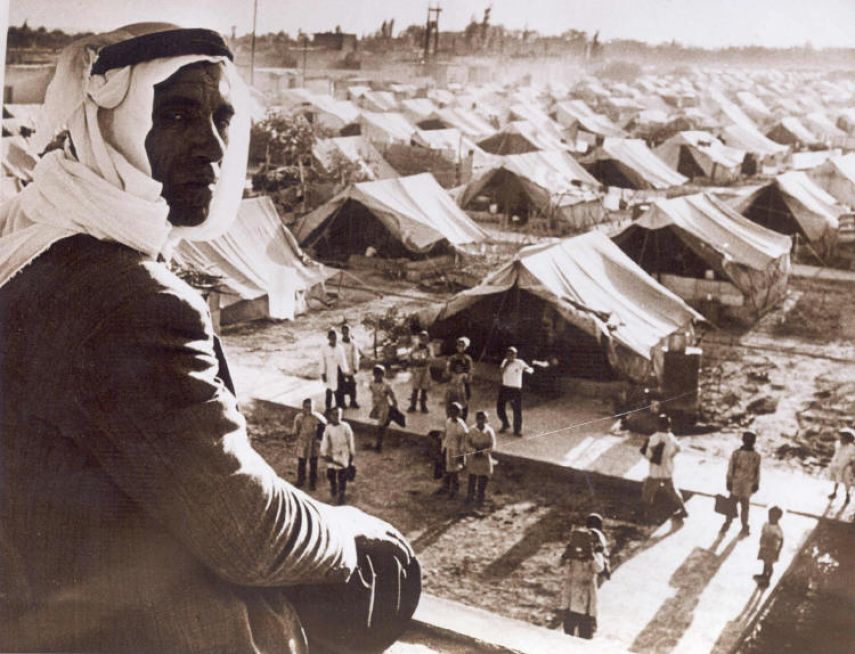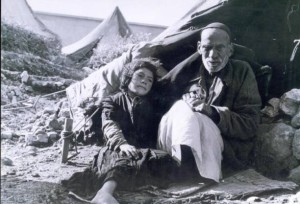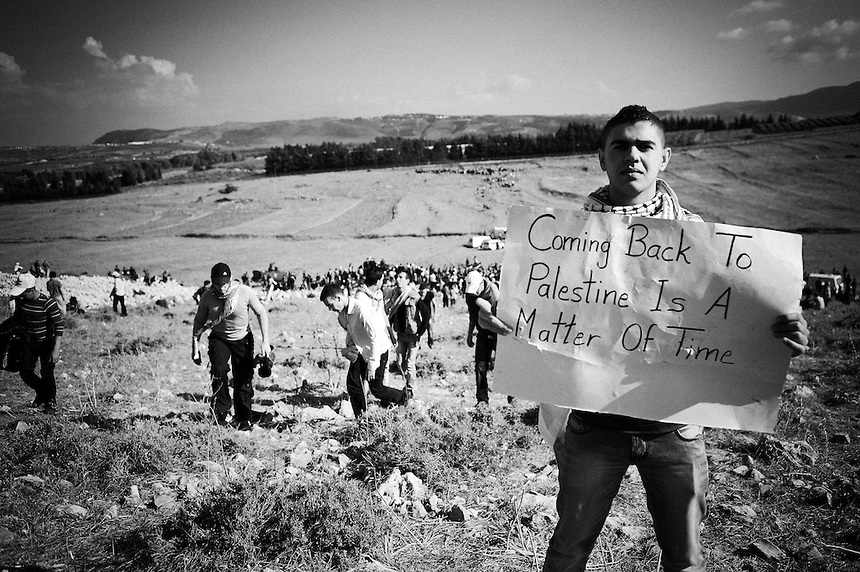
While there’s an abundance in the amount of resources detailing the tragedies of 1948, do we know what that means for Palestinians today? What can’t be said for every Palestinian, can’t be said for many Palestinian millennials living both in the diaspora and within the homeland.
May 15, 1948 is what Palestinians recognize as Al Nakba. It is the day Palestinians commemorate the year their land was stolen by Jewish militias backed by foreign nations. This happened again in 1967 (Al Naksa), and still happens everyday till this day. For Palestinian millennials from ‘1948 territory’, it led to small villages, inhabited by humble farmers, with not much to their name other than some livestock, olive trees, and their land.
 Al Nakba, serves as a reminder for Palestinian millennials that their families were victims of terror for no logical reason. The uncontrollable sobs of our grandmothers begging the men with guns not to shoot their sons echoes in our ears. Our grandfathers kicked to the ground weak and broken, stripped of their respect, somehow plays in our minds as if it were a clear memory. Property, years of saving, and decades of hard work all destroyed within seconds; their lives came literally crumbling down with no hesitation, nor remorse.
Al Nakba, serves as a reminder for Palestinian millennials that their families were victims of terror for no logical reason. The uncontrollable sobs of our grandmothers begging the men with guns not to shoot their sons echoes in our ears. Our grandfathers kicked to the ground weak and broken, stripped of their respect, somehow plays in our minds as if it were a clear memory. Property, years of saving, and decades of hard work all destroyed within seconds; their lives came literally crumbling down with no hesitation, nor remorse.
To millennials, this day is a slap in the face. A reminder that our families were humiliated, robbed, raped, and murdered. While 1948 may seem like a long time ago for some, it feels like yesterday for our parents’ generation, and is not lost to us. It was our parents and grandparents who witnessed these horrors, survived the massacres, trekked their way in the deadly deserts and sea to take their family to safety. That safety came in the form of tents, in a refugee camp with thousands of people who shared the same horrific experience.Those tents then became concrete walls of poverty and inequality in the ghettos of Lebanon, Jordan, and Syria.
As Palestinian millennials living in the diaspora feel an ache for their homeland and sense of helplessness for not being able to change the reality on the ground, Palestinian millennials living in Palestine feel like the diaspora has forgotten and left them alone in the struggle. A generation that never had the opportunity to see it’s homeland thriving in it’s majestic days, never going out on Ajami St. on Friday nights, never being able to swim in the Mediterranean, never feeling the spiritual revolution in the Al Quds, never knowing the Palestine that our grandparents yearn for, but Palestinian millennials long for the same homeland: our homeland.
When Palestinian millennials think of their ancestral home, they wonder whether the spawn of their grandparents oppressors will terrorize us at our own borders. How long will they interrogate us at the airport or borders? Will they turn us away or let us into the very country stolen from our family? Patiently sitting through the hours of an IDF soldier-who looks like they just graduated high school- asks the same questions the last 4 IDF soldiers asked. ‘What do you study? Where do you work? What is your great grandfather’s name? The questions go on until we hold onto every single bit of patience left inside.
“Why are you here? Why are you visiting Israel?”

Just like Al Nakba, it hits us. While it takes everything inside us not burst out, we remain calm, we do what we must to return home, as we always will.
But to answer your question, our great grandfather’s name is Ibrahim. His blood, sweat, and tears are forever embedded in the soil of the land and there’s no declaration, treaty or negotiation, that will ever change that reality. So long as our roots are tied to Palestine, you can expect that we’ll never forget or stop resisting politically, artistically, academically, philanthropically, and all non-violent means in order to keep what is rightfully ours.
WE SAID THIS: Don’t miss Photos To Remind Us How Beautiful Palestine Is


